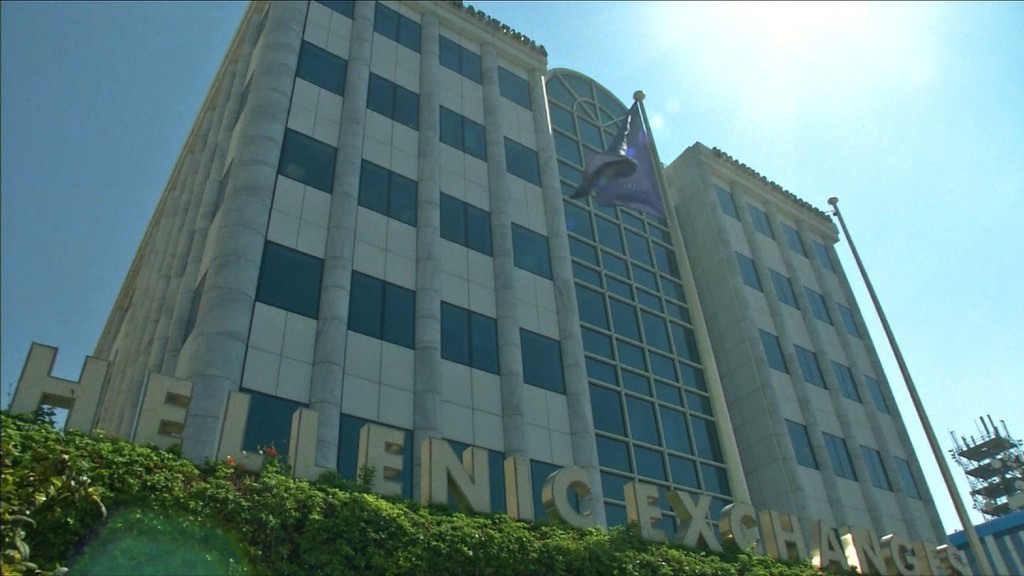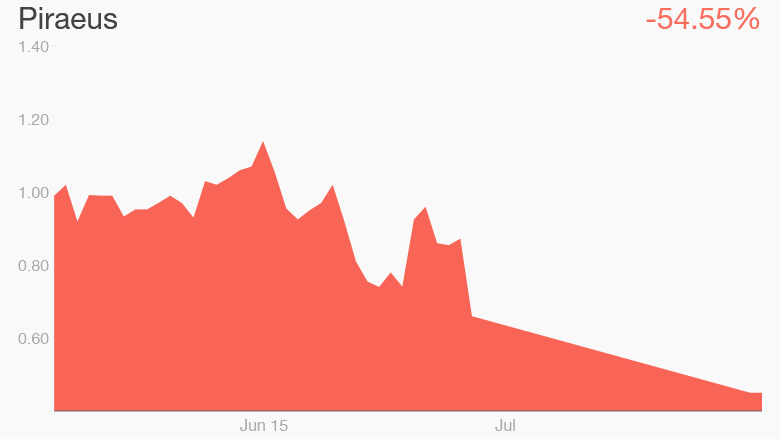
In case you haven't heard, Greek banks are doing really, really badly.
Shares in the nation's biggest lenders have been sliding for about a year, and then fell off a cliff in the last two days when the Athens stock exchange reopened for business for the first time in five weeks.
The crash has left the banks virtually worthless. Together they have a market value of just over 9 billion euros ($9.9 billion). That's a fifth of Uber's estimated value, and less than half what Airbnb is worth.
Piraeus (BPIRF), Alpha Bank (ALBKF), the National Bank of Greece (NBG) and Eurobank all plunged by 30% on Monday, and by almost as much Tuesday.
Piraeus shares have plummeted 97% in the last five years, while Eurobank is down a stunning 99.8%.
Investors are scrambling for the exit because they fear they'll be wiped out when the banks are recapitalized as part of Greece's third international bailout.

Greek crisis: Complete coverage
Greeks have almost as little faith in their financial system. Panicked savers withdrew tens of billions from their accounts in the first six months of the year, fearing Greece may have to abandon the euro.
Pireaus Bank said its deposits slumped by 28% in the first six months of the year. Analysts say other banks faced similar levels of capital outflows.
Related: These investors got burned in Greece
Greek authorities imposed an extended bank holiday at the end of June, to prevent billions more flooding out of the country. ATM withdrawals were limited to 60 euros ($66) per day. The banks reopened on July 20 -- with some restrictions -- after Europe agreed in principle to a new bailout.
The huge capital outflows seem to have stopped for now, but the crisis is not over. The banks rely on emergency cash from the European Central Bank to stay afloat.
And their finances are stretched ever thinner by the growing number of bad loans. Many borrowers stopped repaying their debts as the economy slid back into recession.
One in three loans was overdue by more than 90 days at the end of the first quarter, according to the Greek central bank. Analysts at Barclays say that number has only risen since then.
Greece desperately needs to save its banks if it wants to revive its economy and stay in the euro. Europe's new $96 billion bailout plan includes 25 billion euros ($26.7 billion) to repair the banks' finances.
The four biggest banks have already been propped up by Greece's international creditors, who pumped in 27.5 billion euros as part of a previous rescue.
Europe's bailed out economies are booming. Except Greece, of course

